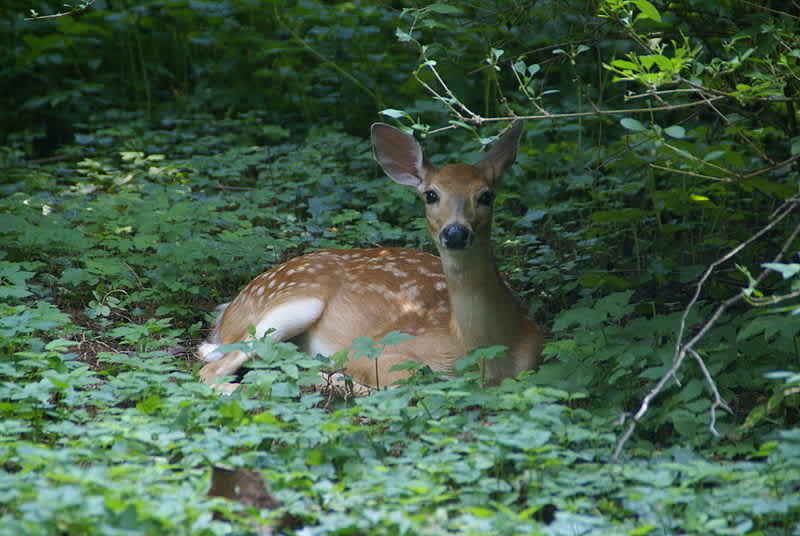Two Fawns Rescued from Lake Oconee
OutdoorHub Reporters 06.09.14

A deer family was reunited late last month due to the efforts of Andy Wooten and Taylor Sinquefield, who rescued two newborn fawns from Georgia’s Lake Oconee. According to WSB-TV, the men were working on a landscaping project in Putnam County when they noticed a distressed deer call coming from the nearby lake. They arrived to find a doe nearby and a fawn trapped in low-lying branches with its head barely above the water.
“I believe what happened is it was probably born at nighttime, close to the lake, and fell in,” Wooten said. “Vines were the only thing holding it above water.”
It was simple enough for Wooten to wade into the lake and carry the small animal back to land.
“We only thought there was one deer initially, but then we heard more distress calls,” Wooten told WSB-TV. “We searched another five to 10 minutes trying to find it.”
You can see a video of the first fawn below:
Sinquefield retrieved the second fawn from where it was similarly trapped along the bank. Wooten said that both the animals appeared to be uninjured, although they were having trouble walking. The men wrapped the fawns in towels and placed them in the sun to recover. After the deer had dried off, it was decided that the fawns should be returned to where Wooten had last seen their mother. Contrary to popular belief, mother deer will not usually reject fawns if they carry human scent. Although does will often leave fawns alone for extended periods, the mother will always return to nurse their young or to move them to a safer location.
Wooten and Sinquefield say they were delighted when they found the family reunited the next day. Wooten describes himself as an avid hunter, yet he was glad to help save the fawns.
Wildlife officials often advise against moving young wildlife unless absolutely necessary. Fawns can look deceptively vulnerable, yet they have a host of advantages that help them survive. It is common for fawns in May or June to be found by themselves curled up in low foliage. Passerbys may mistake the fawn to be an orphan, but this is not unusual. When left alone, fawns will seek low vegetation and stay close to the ground to avoid predators. Since they lack body odor and their brown coat provides excellent camouflage, fawns are actually quite difficult for predators to find.
You can see video of the second fawn below:

